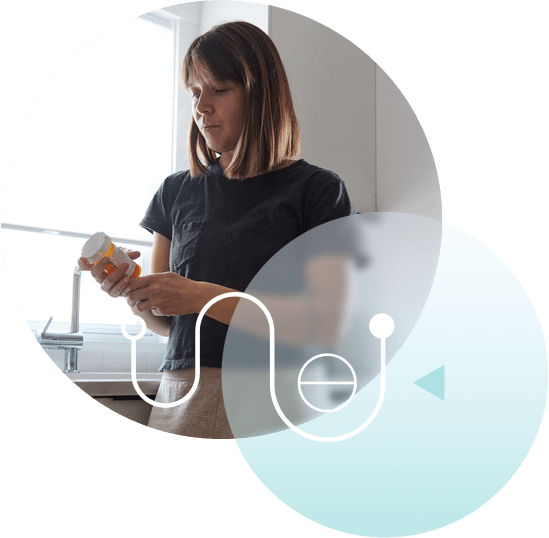We understand many patients wonder whether a certain medicine will work for them. It’s common, and unfortunately, there isn’t a straightforward answer.
Many different factors influence how you respond to medication. And some medicines work better for certain people than others. Because each person is different—genetics, age, and gender, among other differences—your response to medication may be different from someone else’s response. Other factors, such as underlying health conditions, other medications, and dietary considerations, can also play a role in how medication helps your symptoms.
At Brightside, we can help you find the right medicine and find the right treatment to help you feel better.
Before starting a new medicine like gabapentin, it’s important to get a comprehensive health assessment from a doctor or provider who understands your health history. You should only take gabapentin if a physician or other qualified psychiatric provider prescribed it for you.
It will take about a week before you start feeling the effects of gabapentin. However, it’s important to continue taking your medication even if you don’t feel improvement right away. In some cases, your doctor may need to adjust your dosage for you to get the maximum benefit from the medicine. At Brightside, our board-certified physicians will closely monitor your progress to make sure this medication and dosage are right for you.
We understand that mental health concerns often can’t wait, so if you need to meet with a provider right away to discuss a new or existing medicine, Brightside offers same-day consultation and telehealth services.
























